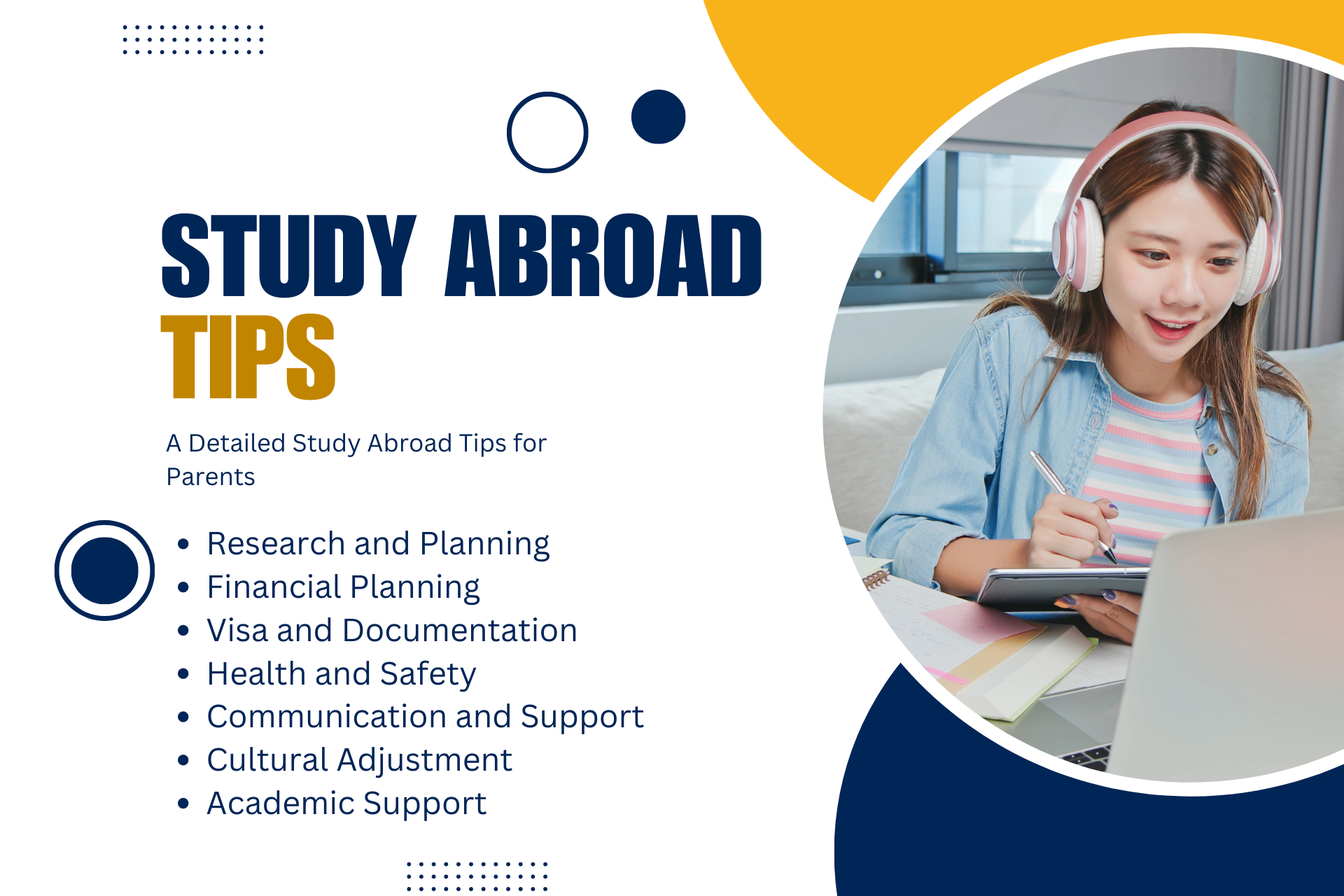Sending a child to study abroad can be an exciting yet daunting experience for parents. Here are some Study Abroad Tips for parents that are valuable and practical. These tips help in supporting their child’s study abroad journey that can alleviate concerns. Moreover, it ensures a seamless transition for both you and your child.
1. Research and Planning
The primary Study Abroad Advice is to research different study-abroad destinations and universities with your child. Consider factors such as academic reputation, program offerings, safety, cost of living, and cultural environment. Engage in discussions with your child to understand their academic and personal goals, as well as their preferred study abroad location.
2. Financial Planning
Studying abroad involves financial considerations. Study Abroad Recommendations for Parents to work together with their children to create a budget that includes tuition fees, living expenses, travel costs, and insurance. Discovering Scholarship Opportunities and Financial Aid for International Students. Encourage your child to seek part-time employment opportunities to supplement their income.
3. Visa and Documentation
Familiarize yourself with the Student Visa Requirements and documentation needed for your child’s chosen study-abroad destination. If needed, you can hire Visa Consultants in Pune who can assist you and your child in gathering the necessary paperwork. Ensure that all documents are up-to-date and submitted within the designated timelines.
4. Health and Safety
Discuss health and safety precautions with your child. Research the healthcare system of the host country and ensure that your child has appropriate Health Insurance Coverage. Familiarize yourselves with emergency contact information and local laws and customs. Encourage your child to stay informed about their surroundings and to follow safety guidelines provided by the university.
5. Communication and Support
Another Study Abroad Tips and Tricks is to establish open lines of communication with your child before they leave. And maintain regular contact while they are abroad. Technology makes it easier to stay connected through phone calls, video chats, and messaging apps. Encourage your child to share their experiences, challenges, and achievements with you.
6. Cultural Adjustment
Prepare your child for the cultural differences they may encounter. Discuss the cultural norms, traditions, and customs of the host country. Encourage them to be open-minded, respectful, and adaptable. Remind them that it’s natural to experience culture shock initially, but that it will subside with time and exposure to the new environment.
7. Academic Support
Understand the academic structure and expectations of the host country’s education system. Encourage your child to make use of academic resources, such as libraries, study groups, and tutoring services provided by the university. Remind them to maintain a balance between academics and personal well-being.
8. Encourage Independence and Growth
Studying abroad is a transformative experience that promotes personal growth and independence. Important Advice for Students Studying Abroad is to take initiative, make decisions, and solve problems on their own. This will foster resilience, self-confidence, and a sense of responsibility.
9. Visit Your Child
If feasible, plan a visit to your child during their study abroad experience. It allows you to witness their growth, experience their new environment, and offer support in person. It also provides an opportunity to explore the host country together and create lasting memories.
10. Celebrate Achievements
Take the time to acknowledge and celebrate the achievements of your child, whether they are major milestones or small victories. Show appreciation for their academic accomplishments, personal development, and the enriching cultural experiences they have encountered. This will boost their confidence and motivate them to continue striving for excellence.
As a parent, supporting your child’s study abroad journey involves thorough research, open communication, and providing practical assistance. By familiarizing yourself with the process and actively engaging with your child, you can ensure their well-being, academic success, and overall positive experience while studying abroad.
Embrace this opportunity for growth and cultural exchange, knowing that you have played a crucial role in shaping your child’s educational journey.



